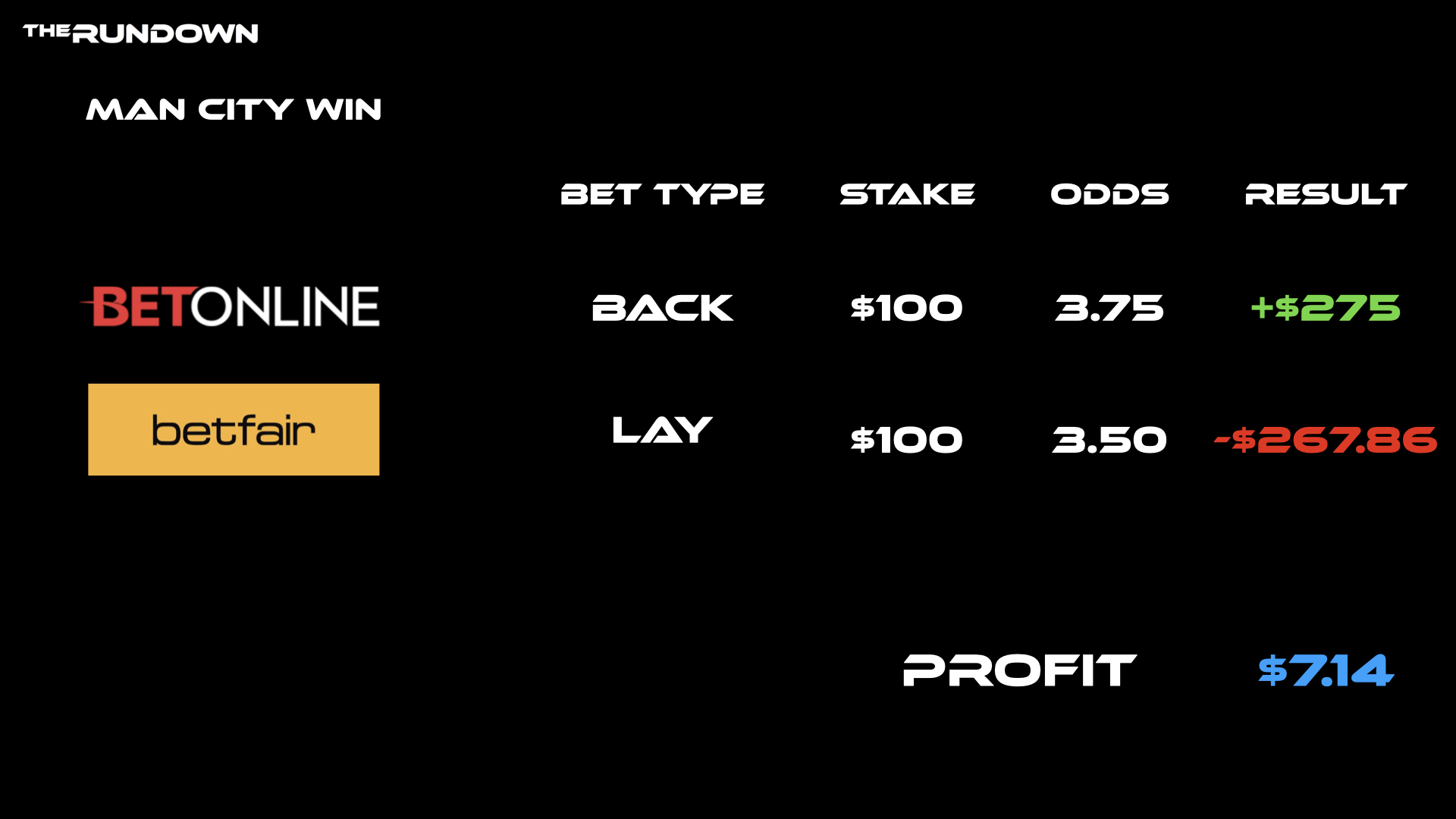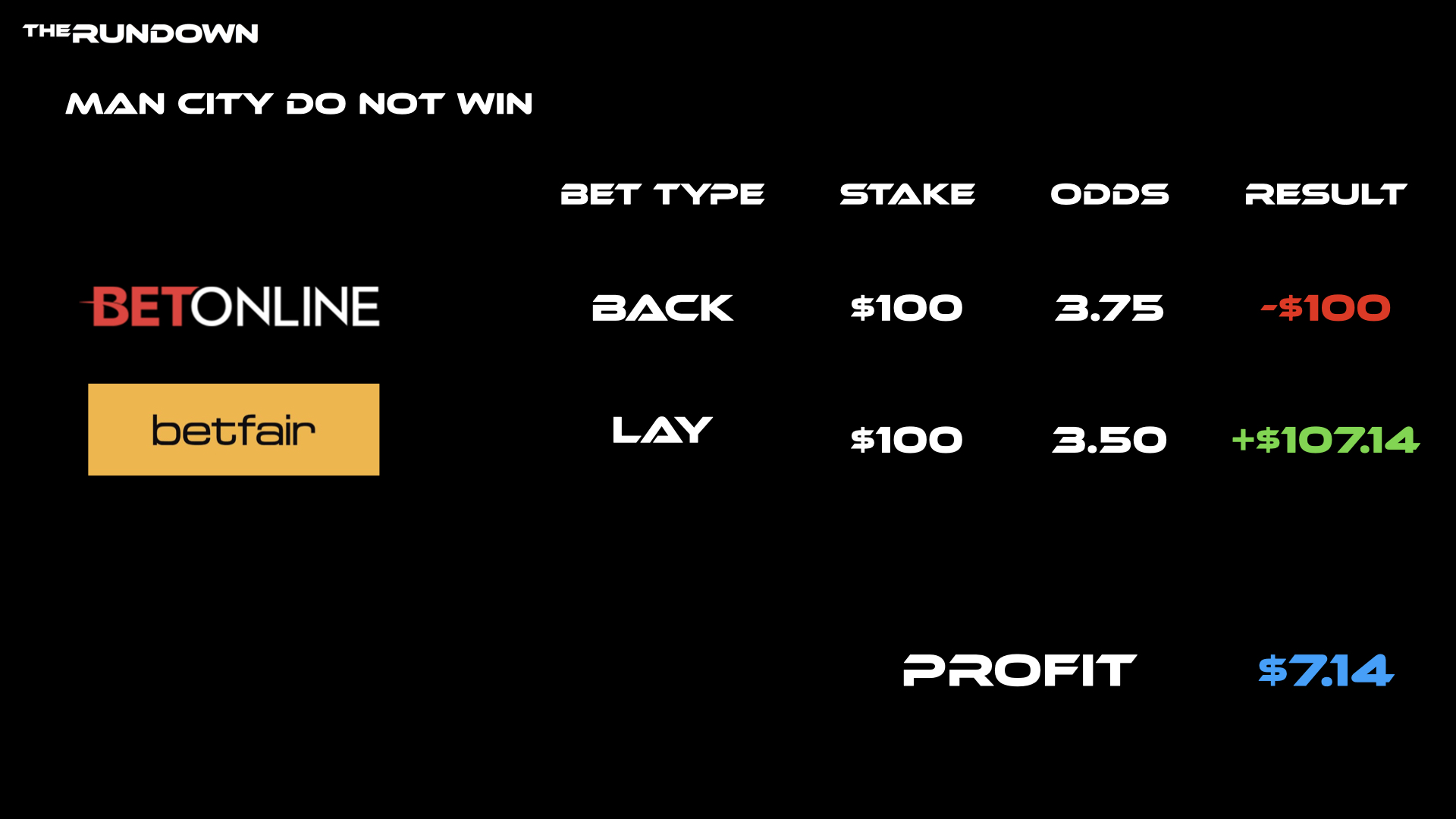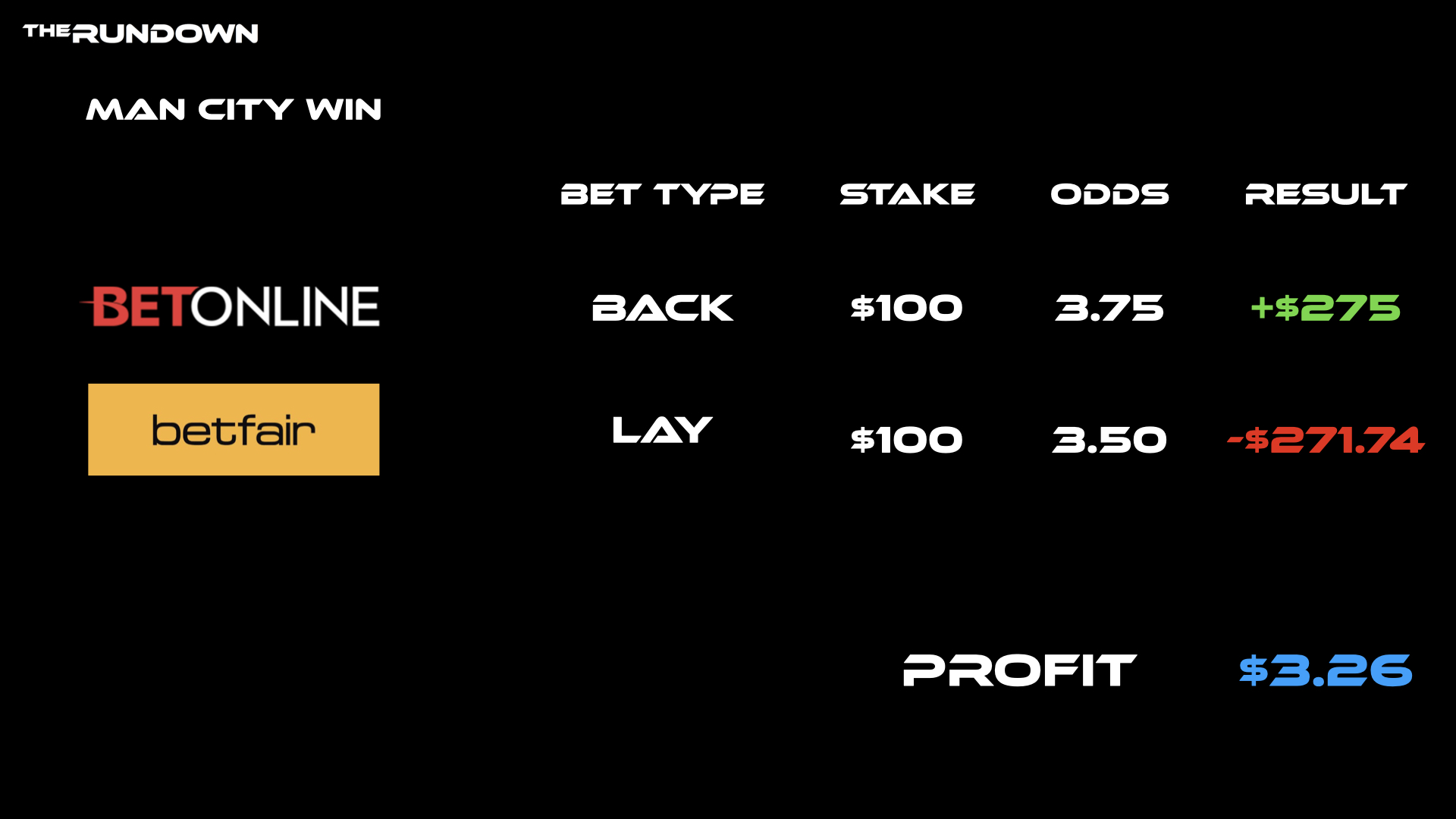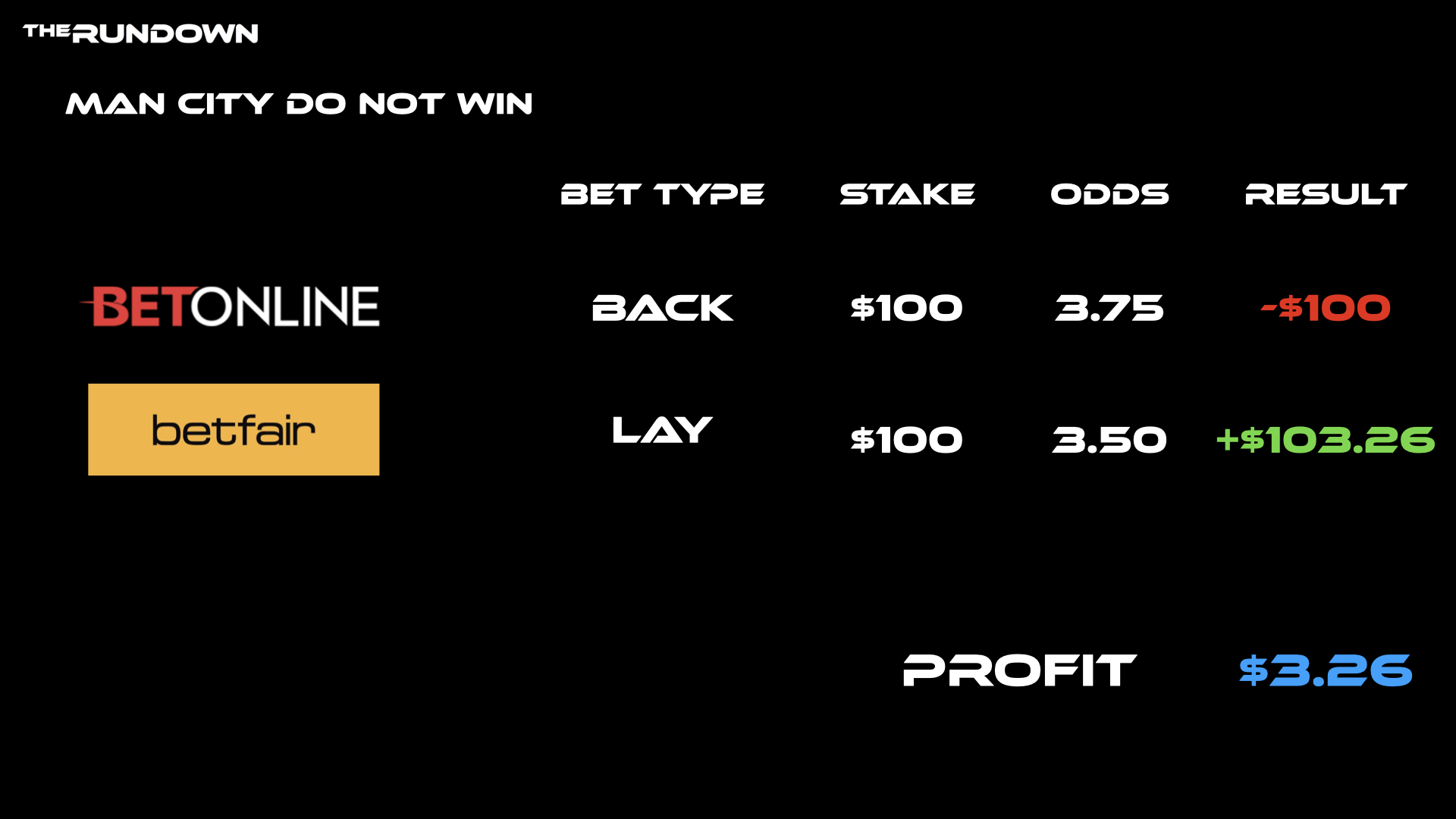- Have any questions?
- WhatsApp: +44 7584676158
- [email protected]
Arbitrage Part II - Betting Exchanges
Interested in learning how to profit from betting exchanges by using arbitrage? Yes! Great, read on...(or watch on if you prefer the video)
This is the second article in a short series about sports arbitrage. The first covered the basics of arbitrage, including betting with bookmakers and I now move on to using betting exchanges.
This form of arbitrage is slightly more complicated, especially for those unfamiliar with a betting exchange. I’ll briefly touch on how exchanges work and will write an article (probably more than one!) providing greater detail later as they are an essential tool in the armoury of any sports gambler aspiring to be successful. I do appreciate that they are not yet widespread in the US but am expecting that to change.
A betting exchange allows users to match bets against each other. Users are able to act in one of 2 ways:
Firstly, by offering odds on a particular outcome in an event to happen, in the same way as a bookmaker would. This is known as laying. The individual offering the lay bet would then profit by that event NOT happening. For instance if a user laid odds on Nadal to beat Federer, and Federer was victorious, the user would win the bet.
Secondly by placing a bet on an event to happen, known as backing. The individual backing would profit by that event happening, in the same way as they would by placing a normal bet at a regular bookmaker. For instance if the user backed odds on Nadal to beat Federer and Federer was victorious, the user would lose the bet.
Users of betting exchanges can offer or request any odds that they like, these are then displayed to other users who can decide whether or not they wish to accept these odds, known as matching. Betting exchanges profit by taking commission from the profit of the winner.
Arbitrage with no commission
That was a brief overview of how exchanges work, now moving on to the arbitrage itself...
Arbitrage is possible when the odds at a bookmaker are greater than the odds that a user at a betting exchange is requesting to bet at. Let’s look at a real example.
Betonline are offering odds of 3.75 for Manchester City to win the FA Cup football competition in England. On Betfair betting exchange a user has requested odds of 3.50 for exactly the same outcome. (The video shows this in more detail).
I’m going to run this twice, firstly just to get the idea, I’ll assume that there is no commission to be paid and secondly I’ll show how commission impacts the numbers. Just quickly, calculators are available online to do the hard work for you and I’m happy to provide my own if there is enough interest, otherwise simply search for back/lay calculator.
I will be placing 2 bets, the first is on Man City to win at Betonline for $100 and the second is to lay Man City to win at Betfair for $107.14.
If Man City do go on to win the FA Cup then at Betonline I will receive $375 back as that bet is a winner. My profit is $275.
At Betfair, due to the fact that laying Man City means that if they win, then my bet loses, I need to pay the winner of the bet. They bet $107.14 at odds of 3.5 and will also receive back $375, consisting of their original stake of $107.14 and their profit of $267.86. Their profit comes from me and so I lose $267.86.
My net profit from Manchester City winning the FA Cup is $7.14.
If Manchester City do not win the FA Cup then I lose my bet of $100 at Betonline, but the Betfair user also loses his bet of $107.14 against me. Again, have a net profit of $7.14.
Either way, I profit by $7.14


Commission
Before running the example with commission I want to explore how this commission affects the odds at a betting exchange. Exchanges charge different rates of commission to different users, generally incentivising users to bet more by reducing their rates the more they bet. In the UK, the starting rate of commission at Betfair is 5% so let’s use that.
Decimal odds are used almost exclusively at exchanges and to understand the effect of commission we need to look a little more closely at how they work. These odds are a multiplier to show how much you will receive back in your pocket should the bet win, importantly this number consists of both original stake and profit elements.
A bet of $100 at odds of 3 means that you will receive back $300 consisting of your original $100 stake and $200 profit. So in order to calculate only the profit element simply subtract 1 from the decimal odds, in this case the profit element is 3-1 which is 2, multiplied by $100. Obvious, I know but...
This is important because as mentioned previously, commission is only paid on the profit part of the bet.
Commission has the effect of worsening the profit element part of your bet return by the commission percentage.
If you are backing odds of 3.00 with commission of 5%, your effective odds are reduced to 2.90, calculated by subtracting 5% of the profit element of 2.00 from your original odds of 3.00.
Conversely, if you are laying odds of 3.00 with commission of 5% your effective lay odds are increased to 3.1, this time calculated by adding 5% of the profit element of 2.00 from your original odds of 3.00.
Arbitrage with commission
Let’s revisit the Man City FA Cup bet.
The odds on them to win the FA Cup at Betonline are 3.75, whilst the price available to lay at is 3.50. This time we are including the 5% commission.
As seen, this commission increases the effective lay odds by 5% of the profit element, therefore moving them up to 3.625, which is less attractive but still profitable.
Once again I place $100 at Betonline for Man City to win the FA Cup, however this time I lay $108.70 on Man City to win at Betfair.
Man City winning the FA Cup means that I would receive $375 back from Betonline, however I would need to once again pay the winner of the identical bet at Betfair.
They bet $108.70 at odds of 3.5 and will receive back $380.43, consisting of their original stake of $108.70 and their profit of $271.74. Their profit comes from me and so I lose $271.74.
My net profit from Manchester City winning the FA Cup is $3.26.
If Manchester City do not win the FA Cup then I lose my bet of $100 at Betonline, but the Betfair user also loses his bet of $108.70 against me. Sadly, I then have to pay commission of 5% on this, reducing my net profit at Betfair to $103.26
Either way, my overall profit by $3.26.


To conclude, using exchanges arbitrage is certainly more complicated and takes longer to get the hang of, but the flexibility of betting exchanges can really help arbitrage, especially when odds are moving quickly.
I hope that this has been of use, the final article/videoin the series explores some of the drawbacks of sports arbitrage as well as where you might look to find opportunities.
I hope that this article has been useful, feel free to comment below or send any emails my way either via our contact form or directly at [email protected].
